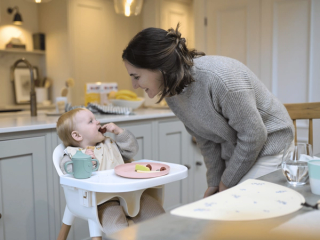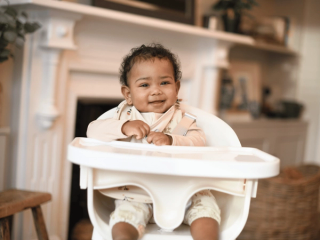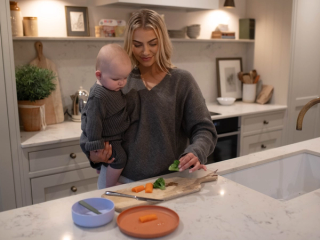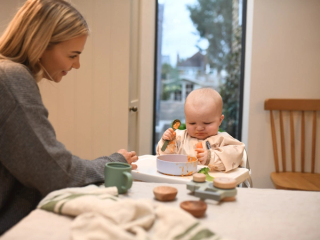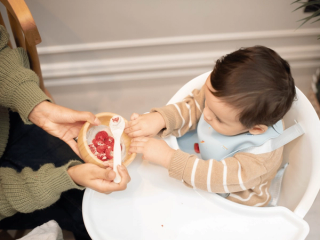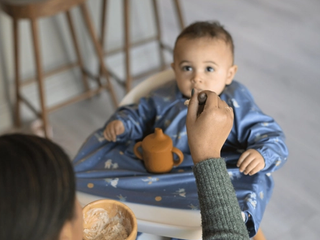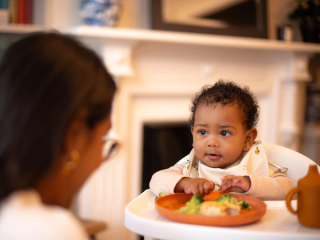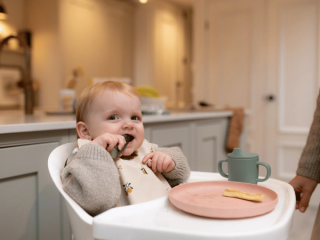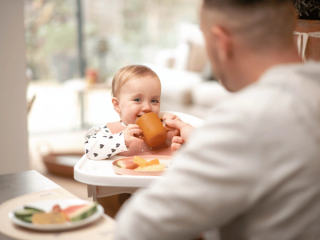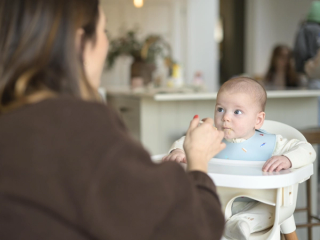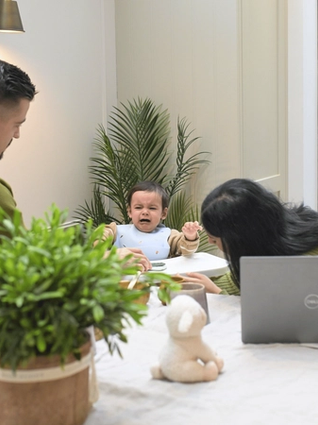
- Home
- Advice Hub
- Baby
- Weaning
- Thinking About Fussy Eating
Thinking about fussy eating
Every child is different, and their eating will impact them and the rest of the family in different ways. This article covers some points to help you decide whether your child’s eating is problematic.
Do you ever worry about your child rejecting foods that you offer? Maybe you’re concerned that they aren’t getting the right nutrients or perhaps you worry about what other people think of your parenting. These are all very normal feelings for parents of toddlers (and something we believe isn’t spoken about nearly enough).
It’s natural to worry when things don’t feel like they are going well and what seems like a huge problem may actually be more normal than you think. Unfortunately, there is no universal definition for fussy or picky eating which can make it difficult for parents to really understand if they should be worried or not.
Every child is different, and their eating will impact them and the rest of the family in different ways, but below are some points to help you decide whether your child’s eating is problematic.
Is your child's eating problematic?
Cutting out whole food groups may be a sign that there are issues with eating. However, if your child eats one food from each group (fruits and vegetables, dairy such as milk, cheese and yoghurt, proteins such as meat, fish, eggs and lentils or carbohydrates such as potatoes, bread and rice), what seems like a narrow range of foods may be more nutritious than you think!
If you find that mealtimes or simply getting your child to eat is causing problems day in, day out, which make it impossible to enjoy family time together, it may be time to get some advice from a registered dietitian.
If you are stuck with the same few foods on repeat and offering new foods brings on big emotional outbursts, this may be a sign that they are struggling more than just some normal developmental fussy eating.
Being unable to eat around others can be a sign that there’s a problem that needs addressing.
Ok, so growth is only one part of the picture, but if you’ve noticed that your child isn’t growing as well as they used to then it’s time to get a healthcare professional involved. If you aren’t sure, then getting your child weighed and measured can be a really good way of putting your mind at rest.
If you’ve answered no to these questions but you’re still worried about your little one’s eating there are a few things to think about.
Changes in appetite
It’s normal for your child’s appetite to drop when they reach a year. During infancy your child has very high energy needs as they are growing so rapidly. However, when they reach a year, their growth slows and their appetite reduces. Sometimes this adjustment of appetite triggers parents to think their child is fussy as they no longer finish meals. In reality you may just be giving them a bigger portion size than they need . Try offering a smaller portion of foods. If your toddler finishes it, they can ask for more, but if not, then trust that they know that they are full.
Refusing new foods
It’s normal for toddlers to reject new foods: We have evolved over many thousands of years and part of our evolution is toddlers rejecting new foods. It’s a reflex that previously kept us safe from eating poisonous berries or mushrooms in the wild. How? Toddlers are inquisitive and want independence; back in the day when they roamed further away their brain would scream DANGER with new foods they hadn’t been given regularly. Fast forward to today and we aren’t giving poisonous foods, but a toddler’s brain has the same reaction to unfamiliar food! Think about the biscuit that breaks as your child takes it – it is no longer the same biscuit…. Your child just cannot stay calm, cue total meltdown. Try to make new foods become more familiar by offering regularly. As we know, it can take up to 10 tries before a food is accepted, so continue to add to your toddler’s plate, or in a separate bowl on the side, so your toddler becomes more familiar with them. Try not to avoid completely because of the first refusal.
Eating patterns
Children don’t always eat 3 meals a day well.
There’s lots of reasons why and it can change from day to day.
- Not being hungry.
- Having distractions at mealtimes.
- Being too tired to eat.
- Being poorly.
- Feeling overwhelmed from a day at nursery/school.
- Eating alone and not having a role model.
Are they filling up at other times?
Young children know how much food they need to eat so if they’re filling up on snacks or drinking too much milk throughout the day, you’ll likely see their appetite at mealtimes reduce. Even if you’re offering healthy snacks, be aware that these are likely to impact a meal if given too regularly . Try to find a regular routine of three meals a day and two healthy snacks.
You have a strong- willed, independent child!
Many parents of fussy eaters describe their children in this way. Children with these personality traits may be seeking out independence at mealtimes. Unfortunately, the more we pressure and persuade them to eat, the less likely it is that they’ll do as they’re asked. So, as hard as it is, pulling back and letting your little one have more independence at mealtimes is actually going to help the situation.
Stay calm
It’s so hard to stay calm when the dish you lovingly prepared is splattered across the floor, but losing your temper will only make a volatile situation worse. If you feel yourself getting upset, take a break. Make sure your child is safe and then take care of yourself – even if that just means having a cry in the loo while your partner starts the clean-up. And while you’re in there, remind yourself – this is a phase. It won’t last forever. You’re doing great.
Advice & tips

Want to read more? Join the HiPP BabyClub for full access to this article.
As a BabyClub member, you'll get access to a range of exclusive benefits, including:
Monthly competitions
Discounts from our Partners
Expert advice tailored to your little one's age
Weaning recipes
HiPP shop discounts*
*10% off HiPP's online shop does not apply to our First Infant, Anti-Reflux or Comfort Formula Milk.
Important notice: Breastfeeding is best. Follow on milk should only be used as part of a mixed diet from 6 months. Talk to a healthcare professional.




